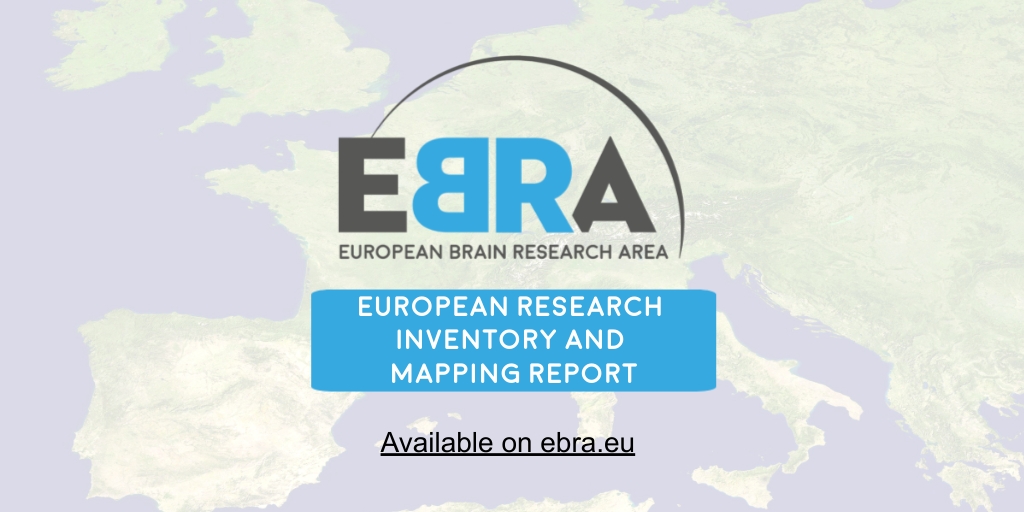9 February 2022
The EU-funded European Brain Research Area project today releases its long-awaited European Research Inventory and Mapping Report, providing insight into the brain research activities funded at the European level within the EU framework programmes FP7 and Horizon 2020, as well as the funding initiatives of the EU Joint Programme – Neurodegenerative Disease Research (JPND), ERA-NET NEURON and the Human Brain Project. The mapping report provides an overview of the current state of brain research in Europe and which areas within brain research, if any, are the focus in Europe. It evidences that despite steadily increasing support, funding is still lacking in all areas of brain research in the EU and more focus is particularly needed on the importance of animal models, increasing public patient engagement and encouraging and enabling data sharing.
“EBRA’s mapping reports highlights that constant support and increased investment in brain research is still vital,” reacts EBRA Project Coordinator, Prof Monica Di Luca. “Despite enormous efforts of the scientific and clinical community, the challenges in the brain space are tremendous, spurred by a high prevalence of brain disorders and increasing disease burden.”
The need for efficiency in funding brain research is also clear: budgets should be allocated in such a way that allows brain researchers to deliver high quality research and support of initiatives that aim to reduce fragmentation, and collaboration and cooperation should be prioritised. Stakeholders need to be able to work more effectively together to better leverage their collective knowledge and succeed in delivering game-changing innovative treatment solutions.
From 2007 to 2019, the European Commission and leading European brain research initiatives have allocated €6 billion to about 4,000 brain research projects, an average of €500 million per year. From 2008 to 2012, an average of 400 million was invested per year, increasing between 2014 to 2018 to 550 million, marking a steady growth. “The EBRA inventory and mapping report demonstrate that annual fundings can reach significant levels to support highly competitive research projects through sustainable, transnational initiatives,” remarks Prof Philippe Amouyel, Chair of the EU Joint Programme – Neurodegenerative Disease Research (JPND). However, continued funding of research consortia across countries is key for a lasting impact on collaboration and innovation in the European and global brain research area. “It is now time to accelerate this momentum through an ambitious partnership on brain health in Horizon Europe under a coordinated approach,” continued Prof Amouyel.
A brain health partnership in Europe should be a common goal to prioritise and ensure brain research is recognised as an urgent need and that the maximum impact and benefit of research breakthroughs reaches society.






